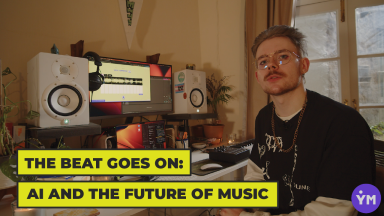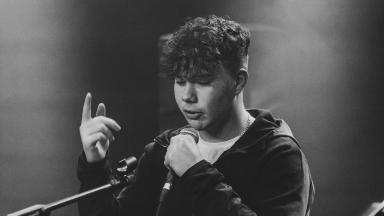A new era for nursery rhymes
Our latest research reveals that over a quarter of parents claim nursery rhymes are outdated.
As The Wiggles' latest EDM album of remixed children’s classics, 'The Wiggles Soundsystem: Rave of Innocence’, storms the charts, the relationship between pre-schoolers and music is undergoing a shift.
As the stronghold of traditional nursery rhymes such as ‘Baa Baa Black Sheep’ and ‘Twinkle Twinkle Little Star’ lessens in favour of more diverse genres, Youth Music, the UK’s leading young people’s music charity, has released new research that reveals 28% of early years parents slam nursery rhymes as outdated, and alternatively, nearly one in five (17%) 0-5 year olds enjoy listening to rock music.
Parents are turning to other genres to foster creativity in their children’s formative years. Nearly half (45%) of parents surveyed said that their children enjoy other genres, with hip-hop (17%), R&B (16%), classical music (12%) and even grime (3%) listed as music their 0-5 year olds are currently listening to.
Nursery rhymes are valuable in supporting the development of language and communication skills in children. However, parents have shown concern on the lyrical content, with 47% of parents claiming that nursery rhyme lyrics need to be updated, even though the tunes are fine. Well known examples of problematic nursery rhymes include “Rub a Dub Dub”, “Eenie, Meenie, Miney, Moe” and “Ten Little Monkeys”, yet they are still being sung today.
The future of children's music
With technology and on-demand music exposing children to a more diverse portfolio of music than ever before, our research has uncovered that half of early years parents (51%) find out about music they like from their children, showcasing the growing influence of such a young age group.
We believe that the skills, creativity and tastes of babies and toddlers should be taken more seriously. The research has been released in line with Youth Music’s unique £1.5million Energiser Fund, the first of its kind in the UK, dedicated to investing more in reimagining early years creativity.
As well as receiving grants, the 10 selected organisations will benefit from a programme in which they can learn from other industry changemakers. Throughout the process, the projects will explore co-design and participation with young children and lead by example to ensure practices are adopted by other Early Years practitioners nationwide, disrupting existing teaching models.
Dr Helen Lyndon, Senior Research Fellow & Postgraduate Programme Lead at CREC, shared her support for the fund, saying: “Engaging in practitioner research is one of the most powerful things that you can do to actually impact the children that you are working with. Practitioners are the experts in their environment, so they are best placed to undertake this meaningful piece of activity that will positively impact children's creative experiences in early years settings.”
Matt Griffiths, Youth Music CEO, said: “It’s clear that music, whether that is traditional nursery rhymes or more surprising genres like rock, plays an important role in nurturing the creativity of pre-schoolers. As music tailored to early years children continues to diversify, the tried and tested route that is typically taken with pre-schoolers music education is no longer resonating. With current policies doing a disservice to children’s creative growth, Youth Music, will lead the charge in reimagining creativity in early years education, calling others to pay attention to and nurture the creativity of these young people.”
Read next...
Let’s Talk About the Class Ceiling in Music
The creative industries in the UK have a problem with working-class representation. How can we help to build a music industry that better reflects our society?
The Beat Goes On: AI and the Future of Music
How are AI tools affecting the creative processes of young musicians? Youth Music NextGen Fund artist Sweet Philly discusses the benefits and concerns surrounding AI tools, which free programs are available, and how they would use them when making a track.
A New Era of Music Therapy: Young People Rely on Lyrics to Aid Wellbeing
The power of music and lyric writing as a therapeutic outlet for young people is undeniable. We hear first-hand from young creatives and music projects about the benefits of lyric writing on their wellbeing in today’s climate.



